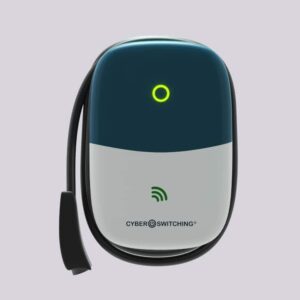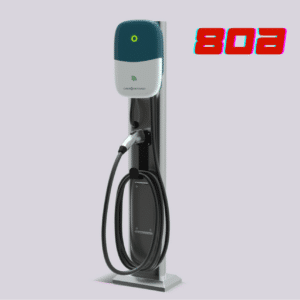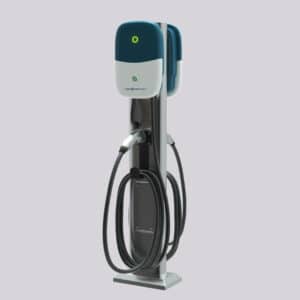- Types of Electric Car Chargers
- Factors to Consider When Choosing a Charger
- Choosing a Home Charging Solution
- Using Public Charging Stations
- Maintenance and Safety Tips
- Conclusion
Choosing the right charger for your electric car is a crucial step in maximizing convenience and efficiency. With the increasing popularity of electric vehicles (EVs), a wide range of chargers is available to suit different needs. Understanding the factors that influence charger selection can help you make an informed decision that aligns with your driving habits and lifestyle.
Types of Electric Car Chargers
Electric car chargers come in various types, each offering different charging speeds and capabilities. Understanding these types can help you determine the best charger for your needs.
- Level 1 chargers are the most basic type and typically come with your electric car. They use a standard 120-volt outlet and are suitable for overnight charging at home. Their charging speeds are slower when compared to other charger types.
- Level 2 chargers necessitate a 240-volt outlet and provide quicker charging rates than Level 1 chargers. They are ideal for daily charging at home or in commercial settings and can fully charge an EV in a few hours.
- DC fast chargers are high-powered chargers commonly found at public charging stations. They deliver rapid charging, allowing you to charge your EV quickly during long-distance trips. However, not all electric cars are compatible with DC fast chargers, so it’s essential to check compatibility before using them.
Factors to Consider When Choosing a Charger
Several factors should be considered when selecting a charger for your electric car:
- Charging Speed: Consider the charging speed of the charger and how it aligns with your driving needs. Level 2 chargers are faster than Level 1 chargers and are suitable for daily charging, while DC fast chargers provide rapid charging for on-the-go convenience.
- Compatibility: Ensure the charger is compatible with your electric car model and charging port. Some chargers may require adapters or specific connectors, so check compatibility before making a purchase.
- Installation Requirements: Consider the installation requirements of the charger, especially for Level 2 and DC fast chargers. Level 2 chargers may require professional installation and a dedicated circuit, while DC fast chargers may have specific power requirements and installation guidelines.
- Cost and Warranty: Compare the cost of different chargers and consider the warranty offered by the manufacturer. Opt for a charger that provides value for money and comes with a reliable warranty for peace of mind.
- Safety Features: Look for chargers with built-in safety features such as surge protection, overcharge protection, and weatherproofing. These features ensure safe and reliable charging, protecting both your electric car and your home electrical system.
Choosing a Home Charging Solution
If you primarily charge your electric car at home, consider the following options:
- Wall-mounted chargers are convenient for home use and offer faster charging speeds than Level 1 chargers. They can be installed in a garage or carport and are available in various power ratings to suit different charging needs.
- Smart chargers come with advanced features such as scheduling, energy monitoring, and smartphone connectivity. They allow you to control and monitor your charging sessions remotely, optimizing energy use and reducing charging costs.
- Portable chargers are handy for on-the-go charging and can be used with a standard 120-volt outlet. They are compact and lightweight, making them ideal for travel or emergency charging situations.
Using Public Charging Stations
For charging on the go, public charging stations are available in various locations such as shopping centers, restaurants, and highways. Below are a few pointers for utilizing public charging stations:
- Plan Ahead: Plan your route and identify public charging stations along the way. Use apps or online maps to locate charging stations and check their availability and compatibility with your electric car.
- Payment Methods: Public charging stations may require payment for charging sessions. Familiarize yourself with the payment methods accepted at different stations, such as credit cards, mobile apps, or RFID cards.
- Charging Time: Consider the charging time needed at public stations and plan your stops accordingly. DC fast chargers provide rapid charging, allowing you to recharge quickly during long-distance trips.
Maintenance and Safety Tips
To ensure optimal performance and safety when using a charger, follow these maintenance and safety tips:
- Regular Inspection: Regularly inspect your charger and charging cable for any signs of wear or damage. Check the connectors, cables, and plugs for corrosion, fraying, or loose connections.
- Cleanliness: Keep your charger and charging cable clean and free from debris or contaminants. Use a soft cloth or brush to remove dirt, dust, or debris from the charging port and connectors.
- Weather Protection: If your charger is installed outdoors or in an exposed area, consider using weatherproofing measures such as covers or shelters to protect it from rain, snow, or extreme temperatures.
- Electrical Safety: Ensure your charger is installed according to the manufacturer’s instructions and electrical codes. Use a dedicated circuit and avoid overloading electrical outlets or extension cords.
Conclusion
Choosing the best charger for your electric car involves considering factors such as charging speed, compatibility, installation requirements, cost, and safety features. Evaluate your charging needs, research different charger options, and consult with experts if needed to make an informed decision. By selecting the right charger, you can enjoy efficient and reliable charging for your electric car, enhancing your overall driving experience and contributing to a sustainable future.
Featured Products
-
 Add To Cart Select options
Add To Cart Select options
Nick Zamanov is a head of sales and business development at Cyber Switching. He is an expert in EV infrastructure space and he is an EV enthusiast since 2012, Since then Nick strongly believed that electric vehicles would eventually replace Internal Combustion Engine (ICE) cars.



